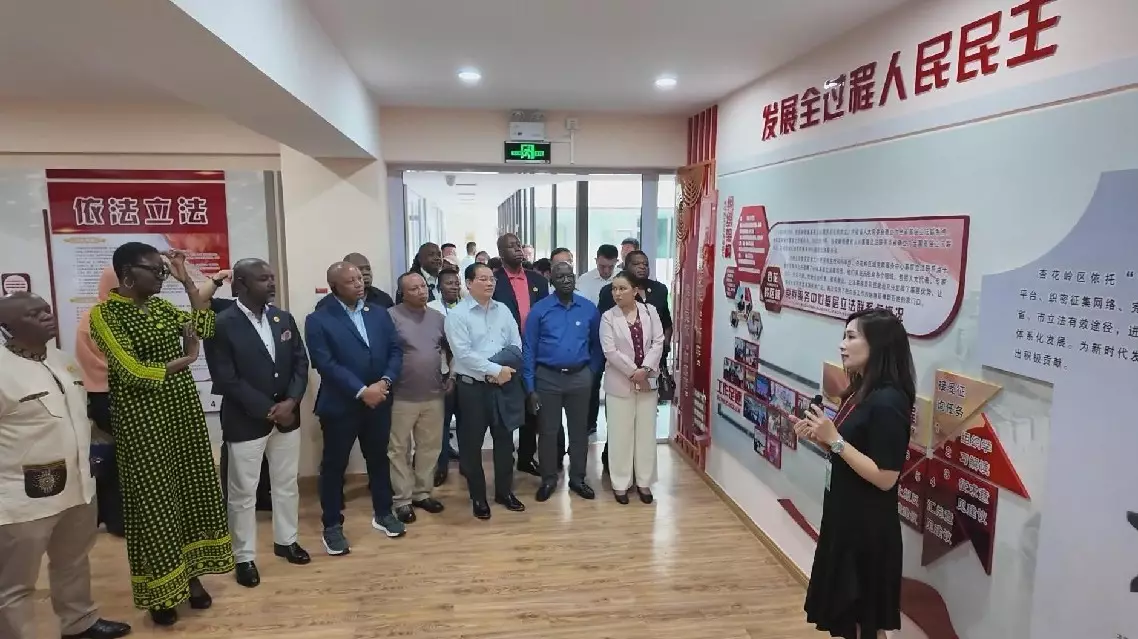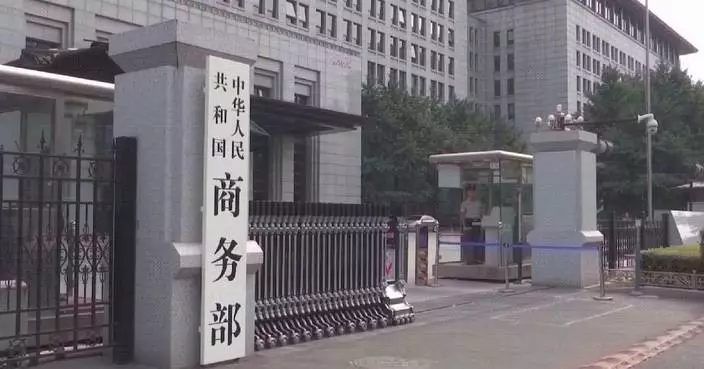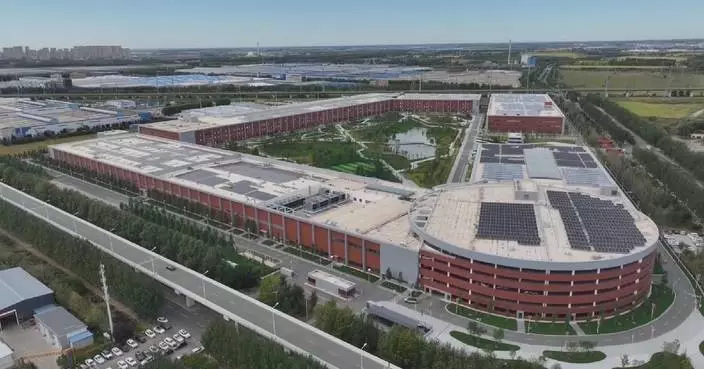Parliamentary leaders and representatives from 32 developing countries recently visited primary legislative outreach points in China's Shanxi Province and Tianjin Municipality to learn about how law-making consultation works at grassroots liaison stations of China's National People's Congress (NPC).
The events were a part of the 2024 Inter-regional Seminar on the Achievement of the Sustainable Development Goals (SDGs) for Parliaments of Developing Countries, co-hosted by NPC and the Inter-Parliamentary Union.
On Saturday, parliamentarians from developing countries attended a consultation meeting at an NPC deputies liaison office in Xinghualing Sub-district of Taiyuan, capital city of Shanxi, on draft regulations for sports development.
Lawmakers from local to national levels were among those offering suggestions.
"I have two suggestions for the draft. One is that we should clearly define the responsibilities and establish clear legal boundaries of daily supervision for extracurricular sports training institutions," said Yang Rong, a deputy to National People's Congress.
The presence of international parliamentarians added a unique dimension to the meeting.
"In today's Namibia, it's quite a challenge for mothers and fathers and particularly (for) grandparents. You got to take kids after school to various extramural activities where there's sports. But your ideas and thinking are basically helping us to understand how we could improve the system," said Peter Katjavivi, Namibia's Speaker of the National Assembly.
During the meeting, Tlohang Sekhamane, Lesotho's National Assembly Speaker, posed a question on how the opinions being gathered and brought to the meeting for discussion.
"We established a legislative outreach point at the community activity center. So, when people come here to play, we can gather their opinions on major issues concerning our various levels of administration," said Wang Tonghua, director of Xinghualing District NPC Standing Committee.
This consultation meeting is part of a broader effort by the country's legislature to integrate grassroots perspectives into legislation.
Since the establishment of the first grassroots legislative outreach office in 2015, as of today, there are 45 grassroots legislative outreach points established by the country's top legislature, which have facilitated the creation of over 7,300 additional outreach points at the provincial and municipal levels.
"I can see that is democracy at its best - from the common man, woman, and child in the village, right up to the NPC," said Tlohang Sekhamane.
On Monday, at the grassroots legislative liaison office in Xiaobailou Sub-district, Tianjin, Kafilat Adetola Ogbara, chairman of the House of Representatives Committee on Women Affairs and Social Development in Nigeria, shared her insights after exploring how representative the lawmakers are.
"I see that women are well-represented. And even here at the communal level, the local level has about 47 percent women representation. This is highly commendable. And this is why in Nigeria, we are still clamoring because we have less than 4 percent of women representation in our parliament. So for the world to be a better place, we have to help the developing countries," said Ogbara.
"The pace of development of China depends on people giving their input and trying to ensure that everybody works together towards a collective goal," said Sebastien Pillay, a member of the National Assembly of Seychelles.
As China continues to expand its grassroots legislative efforts, its commitment to democratic principles and transparency in the legislative process is gaining more and more international attention.
These exchanges on how the legislative process actively seeks and integrates public opinion, ensuring every law is both practical and reflective of people's wishes, also foster a deeper understanding of democratic practices that strive for inclusivity and responsiveness.

Foreign lawmakers applaud China's grassroots legislative outreach









